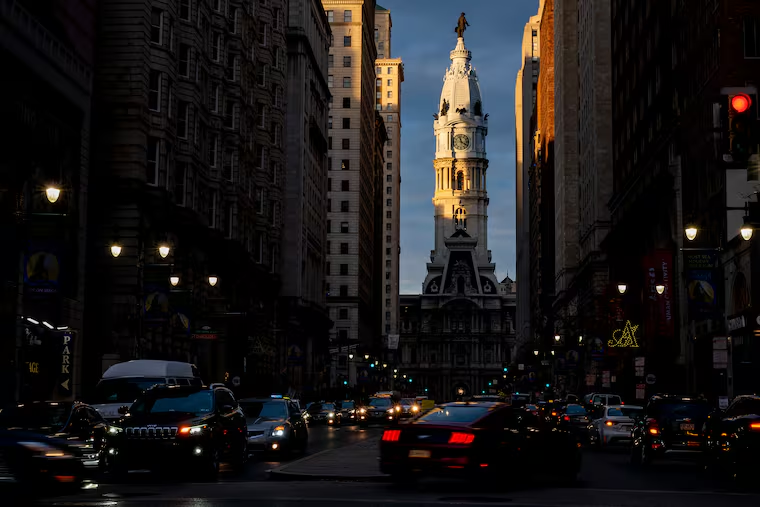City Council is ready to adopt a new redistricting plan — but won’t tackle ‘prison gerrymandering’
Councilmembers amended the plan to fix an imbalance between the populations of the districts, but did not update its data to address the issue of “prison gerrymandering."

Philadelphia City Council members on Wednesday gave preliminary approval to Council President Darrell L. Clarke’s plan to redraw district boundaries after making minor adjustments, putting lawmakers in position to adopt the new map in time for a Feb. 12 deadline.
An amendment to Clarke’s plan that was adopted in a unanimous voice vote moved a handful of voting precincts between Council districts and corrected an imbalance in the populations of the districts that could have made the map vulnerable to a legal challenge.
But the amendment did not address the issue of “prison gerrymandering.” Many residents who testified about the plan last week urged Council to count incarcerated people at their last listed addresses, rather than at correctional facilities — a new approach that is gaining steam across the country and is meant to prevent districts that are home to jails or prisons from being overrepresented in legislatures.
In Philadelphia, Council’s 6th District, from which former Councilmember Bobby Henon resigned last month after his conviction on federal corruption charges, is home to the city’s State Road jail complex, inflating the district’s population by nearly 5,000 people at the expense of voters in other districts, especially those where many residents are absent due to incarceration.
Clarke said at a hearing last week that lawmakers could revisit that issue by taking the unusual step of revising the map between the redistricting cycles triggered by the decennial census.
Overall, the amended map, expected to receive final passage at Council’s Feb. 10 meeting, largely follows the contours of the current districts. Good-government advocates say Philadelphia’s districts are, for the most part, compact and fair in comparison with racially discriminatory maps used by Council in the past and heavily gerrymandered legislatures elsewhere in the country.
But Council did not win praise for its redistricting process, in which Clarke negotiated with members behind closed doors before revealing his proposal two weeks ago with little time or opportunity for public input. Lawmakers’ Feb. 12 deadline to adopt a new map is imposed by the city Home Rule Charter. If they miss it, the city would withhold paychecks from them.
One issue that needed to be addressed in Clarke’s original plan was the relative lack of population in Councilmember Curtis Jones Jr.’s 4th District, which stretches across the Schuylkill from Overbrook to Roxborough.
Courts generally require that the least and most populous districts in a legislative map be no more than 10 percentage points apart in order to ensure equal representation. In Clarke’s proposal, the 4th District, however, was 10.2 percentage points less populous than the 6th District.
The amendment added population to Jones’ district, protecting the map from legal jeopardy. The final tweak to the map was a small but notable addition to the 4th District that was sent to Council members by Clarke’s office minutes before the Wednesday morning meeting.
It moved a small slice of Brewerytown in North Philadelphia from Councilmember Jamie Gauthier’s West Philadelphia-based 3rd District to Jones’ district. Clarke’s initial inclusion of the Brewerytown precinct in Gauthier’s territory raised eyebrows because no other part of her district is east of the Schuylkill.
Jones did not respond to a request for comment Wednesday evening. Gauthier said she was glad the final compromise didn’t involve her district growing “in ways that are unnatural or that don’t make a lot of sense.”
“I’m sure Brewerytown is a lovely place, but I didn’t think it made a lot of sense for me to jump across the Schuylkill to represent communities that I don’t have a lot of history with or who themselves may not feel like they’re a natural part of West and Southwest Philly,” Gauthier said. “I feel good about where things landed.”